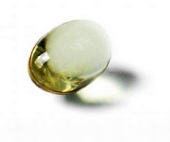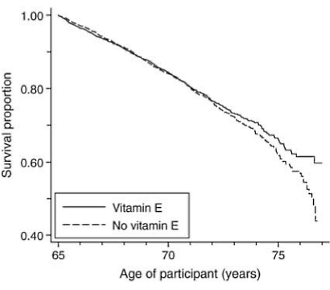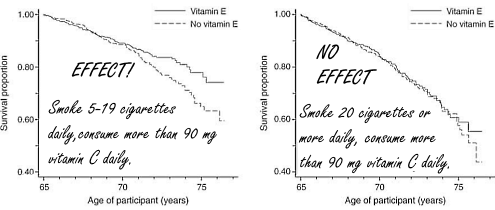|
Definition: "An ergogenic aid is any substance or phenomenon that enhances performance "
|
|
||||||||
14.07.2017 |
|
|
Live two years longer with extra vitamin E
Study
In retrospect the beta-carotene dose was extremely high. The EFSA recommends that we consume no more than 15 mg beta-carotene daily in the form of supplements. EFSA's maximum dose for alpha-tocopherol is 300 mg per day. [Link]
Results
In the end alpha-tocopherol extended the life expectancy of the over 70s by six months the researchers calculated. And, yes, that's a statistically significant effect.
When the researchers separated out their data, they discovered that the alpha-tocopherol only extended the life expectancy of the men who smoked fewer than 20 cigarettes a day and consumed more than 90 mg vitamin C a day. Alpha-tocopherol extended life expectancy by two years in this sub-group.
Some of the men also took beta-carotene, but this was of no influence in this group. [Table]
Conclusion
"Although the 2-year increase in lifespan in the subgroup of participants who had high vitamin C intake and smoked less is substantial, only 20 percent of the study participants belong to this subgroup. The lack of benefit in the other participants, consisting of 80 percent of this male cohort, shows that vitamin E is no panacea for extending life expectancy."
"Given the heterogeneity in the effect, the findings should not be generalised without caution. Nevertheless, our findings warrant further study on the possible effect of vitamin E on old people."
Source:
More:
Archives:
|
|
||||||||||||||||







